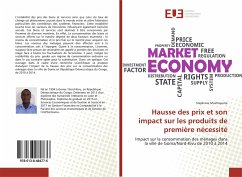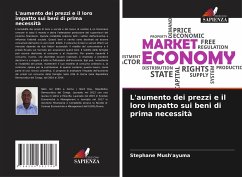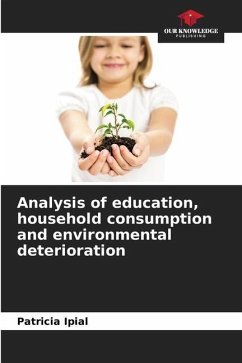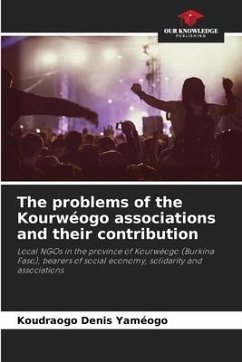
Price rises and their impact on basic necessities
Versandkostenfrei!
Versandfertig in 6-10 Tagen
27,99 €
inkl. MwSt.

PAYBACK Punkte
14 °P sammeln!
Instability in the prices of goods and services as well as in the exchange rate is a common phenomenon throughout the world and attracts the particular attention of financial system supervisors. This instability affects all sectors of the economy and influences social activity. These goods and services are intended to be consumed by humans in various ways. Indeed, the consumption of goods and services offered on the market depends on two essential factors: the income of the consumer and the price set on the market to acquire these goods. Household income can be allocated either to consumption ...
Instability in the prices of goods and services as well as in the exchange rate is a common phenomenon throughout the world and attracts the particular attention of financial system supervisors. This instability affects all sectors of the economy and influences social activity. These goods and services are intended to be consumed by humans in various ways. Indeed, the consumption of goods and services offered on the market depends on two essential factors: the income of the consumer and the price set on the market to acquire these goods. Household income can be allocated either to consumption or to savings. As for consumption, man, who is supposed to be rational, is called upon to make decisions and react to all the fluctuations in the economy. He can, despite price instabilities, maintain his ordinary consumption pattern or, on the contrary, opt for substitution. In this context, this work, as part of a scientific research, proposes to analyse the impact of price increases on household consumption in the city of Goma in the Democratic Republic of Congo, from 2010 to 2014.












